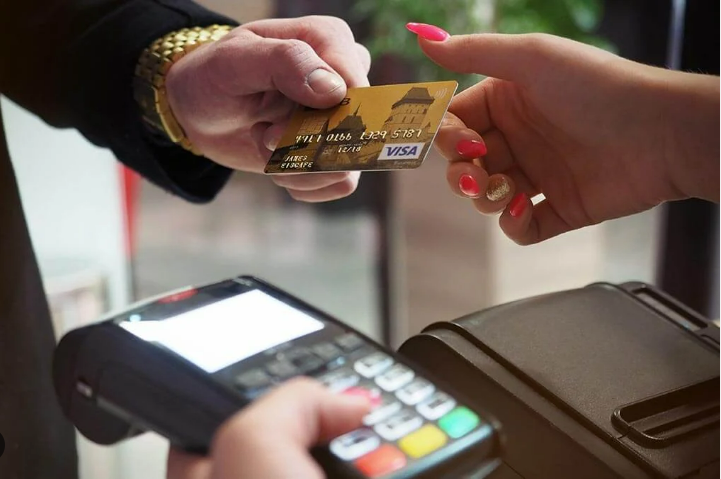
For those new to consumer credit, it’s crucial to begin by mastering the fundamentals of establishing a solid credit history. This sets the stage for successful credit card, loan, and mortgage applications, as well as access to higher loan amounts, credit limits, and bank credit lines. Moreover, it positions you to secure favorable terms, such as lower interest rates, potentially saving significant sums over your lifetime. Here are five essential steps to kickstart your journey.
Start With a Low-Limit Secured Credit Card
Financial institutions view consumers with no credit history as risky prospects, as their primary goal is risk mitigation. Thus, the simplest route to initiation involves securing a credit card with a modest spending cap.
Upon opening a secured credit card account, you’ll provide a cash deposit to the issuer, often matching your maximum credit limit, which can start as low as $500. Should you encounter difficulties in bill payment, the institution can utilize this deposit to settle your balance, effectively nullifying the risk associated with extending your initial credit line.
Seek out secured cards with minimal or no application, annual, and processing fees. Although these cards typically entail higher interest rates compared to unsecured counterparts, prompt balance clearance each month is advisable to avoid accumulating substantial interest charges. While it might initially appear counterintuitive to surrender your funds upfront to secure credit, it serves as a pivotal starting point for individuals lacking credit history or grappling with poor credit.
Graduate to a Credit-Building or Secured Loan
Credit-building loans often escape mention in discussions about enhancing consumer credit, yet they prove to be both secure and effective tools. These loans operate akin to savings programs: lenders deposit the entire loan amount into a dedicated account inaccessible to the borrower. Subsequently, regular payments contribute towards eliminating the loan balance, with funds released upon full repayment. While initially unconventional, credit-building loans offer a unique advantage: timely payments are reported to credit bureaus, significantly bolstering your creditworthiness upon successful completion.

Alternatively, securing a loan from a bank or credit union presents another viable option. Secured loans necessitate collateral, providing lenders recourse to seize assets in the event of payment default. Similar to secured credit cards, these loans typically carry higher interest rates but serve as robust tools for credit improvement. For instance, if you’ve paid off your car, it may serve as suitable collateral. However, exercise caution to prevent overextension, as failure to meet repayment obligations could deteriorate your credit and result in asset seizure by the lender.
Become an Authorized User on a Family Credit Card
Consider discussing with your parents or siblings the possibility of becoming an authorized user on one of their established credit cards. This arrangement allows you to utilize the card without undergoing credit applications. Your payments made on the card will be documented in its history, ensuring they are reported to credit-tracking bureaus. Prior to proceeding, it’s advisable to communicate with the card issuer to confirm that payments made by authorized users are reported in the same manner as those made by the primary account holder.
Get a Co-Signer to Help
Another avenue to bypass the secured credit card and loan options accessible to new borrowers is to enlist the support of a co-signer with established credit. In this arrangement, the co-signer assumes responsibility for your debts, effectively guaranteeing your creditworthiness. Through this method, you may qualify for cards offering higher credit limits and lower interest rates. However, it’s crucial to bear in mind that your co-signer assumes full liability for any debts you incur if you fail to fulfill your obligations. Irresponsible behavior with a co-signed credit card could irreparably damage your relationship with the co-signer. Thus, it’s imperative to exercise responsibility when someone is leveraging their credit to support you.
Use Credit Responsibly

Establishing a strong foundation of responsibility is paramount once you acquire your first credit card or loan. Credit bureaus meticulously monitor consumer actions, documenting missed payments and other missteps on your long-term record, which remains accessible to lenders for years. To ensure you earn their trust and favor, adhere to these essential guidelines:
- Resist the temptation to view your credit card as a fallback option for extra funds when your bank account runs low. Without available funds, how will you repay your balance?
- Exercise restraint in using your credit card, limiting purchases to small, manageable amounts.
- Consistently make timely payments each month, ensuring they are processed by the specified due date. If you encounter any uncertainties in this process, seek guidance from your bank or credit card issuer.
- Whenever possible, pay off your entire balance to optimize your debt-to-credit ratio. Maintaining a considerable distance from your credit limit accelerates your credit score’s ascent.
While some credit-building resources suggest carrying a balance from month to month to showcase loan management skills, others advocate for paying off the balance in full to avoid interest charges. Both strategies have their pros and cons, but generally, settling the balance entirely is advisable. Most new borrowers have limited financial resources, and avoiding interest charges can yield significant savings.
More Tips for Building Credit
Although these five strategies serve as a solid starting point for establishing a positive credit rating, they represent only a fraction of the numerous paths accessible to new borrowers. Building credit doesn’t necessarily hinge on obtaining a credit card. Alternative methods include acquiring and promptly repaying a student loan, ensuring your rent payments are reported to credit agencies, or collaborating with lenders who consider alternative data such as bank balances and utility payment history when evaluating your creditworthiness.
